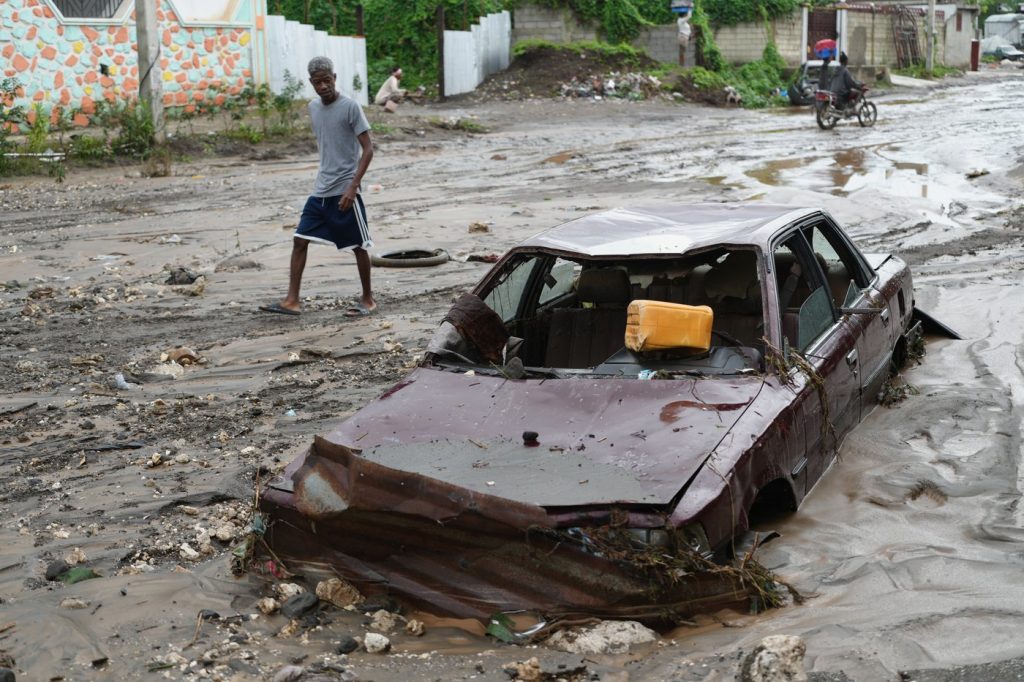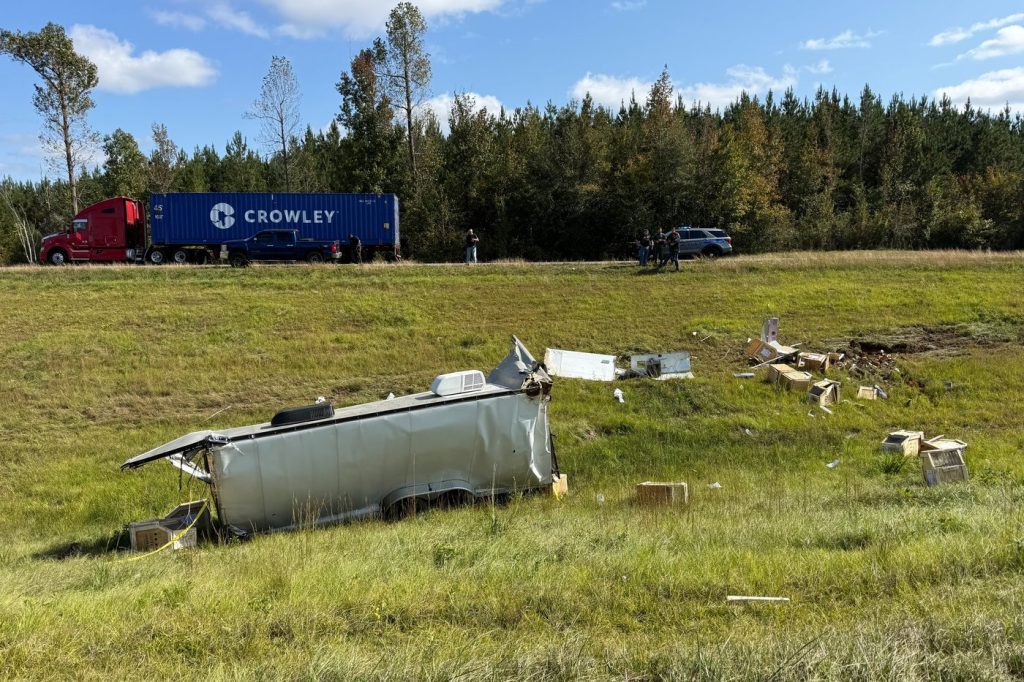PORT-AU-PRINCE, Haiti (AP) - Haiti's government announced on Tuesday that the death toll from Hurricane Melissa has risen to 43, with an additional 13 individuals reported missing. Rescue crews continue their efforts to reach the southwest region of the country, which has been devastated by landslides and floodwaters impacting over 30 communities.
Among the most affected areas is the southwestern coastal town of Petit-Goâve, where at least 25 fatalities have been documented. Hurricane Melissa, a Category 5 storm recognized as one of the strongest Atlantic hurricanes on record, severely flooded approximately 12,000 homes and destroyed nearly 200 others when its outer bands lashed Haiti last week. Many roads remain impassable, complicating relief efforts.
The Haitian government has issued warnings regarding a drinking water shortage in several communities. In response to the extensive agricultural losses, it plans to distribute seeds and tools to farmers. Additionally, over 1,700 people remain in shelters as the country grapples with the aftermath of the hurricane.
In Jamaica, efforts are underway to assist more than two dozen communities that have been cut off since Hurricane Melissa made landfall on October 28. The storm has led to at least 32 reported deaths in Jamaica, with officials cautioning that this number may increase. Prime Minister Andrew Holness indicated that preliminary estimates suggest the hurricane has caused at least $6 billion in damage, marking a significant blow to the economy. "This is a disaster of unprecedented magnitude," Holness stated.
The U.S. State Department confirmed on Tuesday that it has pledged $24 million in disaster relief funding for Caribbean islands affected by Hurricane Melissa. Specific allocations include $12 million for Jamaica, $8.5 million for Haiti, $3 million for Cuba, and $500,000 for the Bahamas, with further assistance to be announced following comprehensive assessments of the situation.
Mike Bassett, the national director of domestic, humanitarian and emergency affairs for World Vision International, warned of a potential humanitarian crisis if aid is not delivered swiftly. "In my decade of experience, I have never encountered anything like this," Bassett remarked during his visit to hurricane-impacted areas in Jamaica. Some residents in these areas are resorting to bathing in rivers and collecting water for drinking due to the lack of electricity and potable water following the hurricane.
World Vision is among various international aid organizations and local volunteers collaborating with Jamaican officials to provide necessary assistance. Transport and Energy Minister Daryl Vaz, co-chair of a special committee organized to oversee the government's relief and recovery measures, noted that relief flights were arriving rapidly and supplies were abundant. Pearnel Charles Jr., who heads Jamaica's Social Security Ministry, stated that the relief effort is being intensified, countering complaints that aid distribution is inadequate.
The State Department has dispatched disaster assistance response teams and urban search and rescue units from both Virginia and California to the affected countries, with particular focus on Jamaica, where storm damage appears to be most severe. To date, the department has responded to approximately 800 requests for assistance from American citizens in or traveling to Jamaica, with over half of those calls originating from the resort area of Montego Bay. An estimated 11,000 Americans have left Jamaica, most without U.S. government assistance.
Concerning Cuba, the funds designated for aid will be channeled through the Catholic Church rather than directly through government agencies, as stated by the U.S. State Department. The flood of international aid continues to pour into the region as both nations begin to recover from the extensive damage inflicted by Hurricane Melissa.












